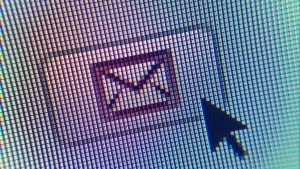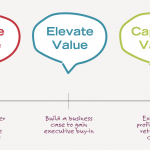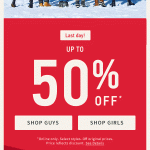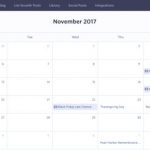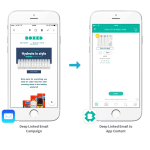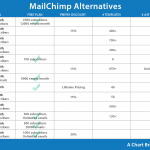These Are Email Templates To Use When You Want To Ask For An Introduction
Throughout the course of your career, there will be times when you need to ask for an introduction–even when you don’t want to. Whether you’re a new entrepreneur looking for an “in” with investors or just seeking a career change, you’ll need to tap your network for referrals, connections, and opportunities to chat.
Needless to say, making these requests can feel awkward–but it doesn’t have to. Here’s a three-step process that can make the whole experience less scary, all starting with the very first email you send, asking to be put in touch.
Step 1: Be Direct, But Leave Them An “Out”
Once you’ve identified the person who knows you and your desired connection, send an email to them that’s casual, but be up front and direct. Include a link to the desired connection’s LinkedIn profile and always give the other person an easy out in case they can’t make the connection for one reason or another. Either share the pertinent details that your acquaintance needs to make the intro right then–or let them know you’ll follow up ASAP with an email they can forward easily.
Here’s a sample email:
Jane,
Hope all is well. It was good to see you at the retail leaders’ dinner in Palo Alto in July. How was the trip to Iceland? It’s still on our bucket list.
I’m reaching out to ask for an introduction to John Smith at XYZ Company. We’ve just released a new product that is seeing some surprising traction with restaurant chains. John’s feedback on how he might think about this type of data would be very helpful.
Would you mind making an introduction? If so, I’ll send you an email that will make it easy to forward to John.
Thanks!
Brent
If the person declines to make the introduction, don’t take it personally. Be gracious, say thank you, move on. He or she might not know the person that well, or have some history that you’re simply not privy to.
Step Two: Follow Up Immediately
That day, be sure to send an email that’s easily forwarded to your target. Remember that you’re really speaking to two audiences here–your mutual connection and your desired connection.
In your note, you should provide some basic details about yourself–yes, your mutual connection knows who you are, but your new connection probably doesn’t. In addition, you should be specific about your request and who you’re trying to get to. It’s not enough to ask for a generic intro. After all, your mutual connection is putting their social capital and network on the line. Make sure you take that seriously and do your homework before you make the request.
Here’s a sample email:
Jane,
Good to catch up this week–enjoyed hearing about the trip to Iceland. As I mentioned, I’m looking for an introduction to John Smith at XYZ Company.
As you know, in my role as the CEO of Euclid, I spend a lot of time with various retail and restaurant leaders understanding how we can provide the most impact in solving some of their most pressing customer acquisition and offline attribution problems. We’ve just released a new product that is seeing some surprising traction with restaurant chains and John’s feedback on how he might think about this type of data would be very helpful.
Would you mind making an introduction? Let me know if you need anything else that might be helpful.
Thanks!
Brent
Step Three: Make Your Mutual Connection Look Good, And Then Add Your Own Value
Once your mutual connection does make their intro, don’t forget that they’re doing you a favor and putting their relationship and credibility on the line. Make them look good. Respond immediately on the same day.
Make it super easy for your target to connect with you and find a good time to talk. Remember, this person doesn’t know you so your behavior is a reflection on the mutual introduction who connected you. Don’t embarrass them.
Find a way to be helpful after the introduction is made. Comb your network for people who might be helpful to your new connection. Pass along a useful article. Send along a small gift after a good conversation, such as a book that has relevance to something you discussed, with a warm note of thanks. And while you’re at it, follow up with your mutual connection to say thanks and report back on how your conversation went. It’s always great to hear that things went positively.
Brent Franson is the CEO of Euclid, a data platform that provides offline identity and behavior for brick-and-mortar brands.
Fast Company , Read Full Story
(25)

